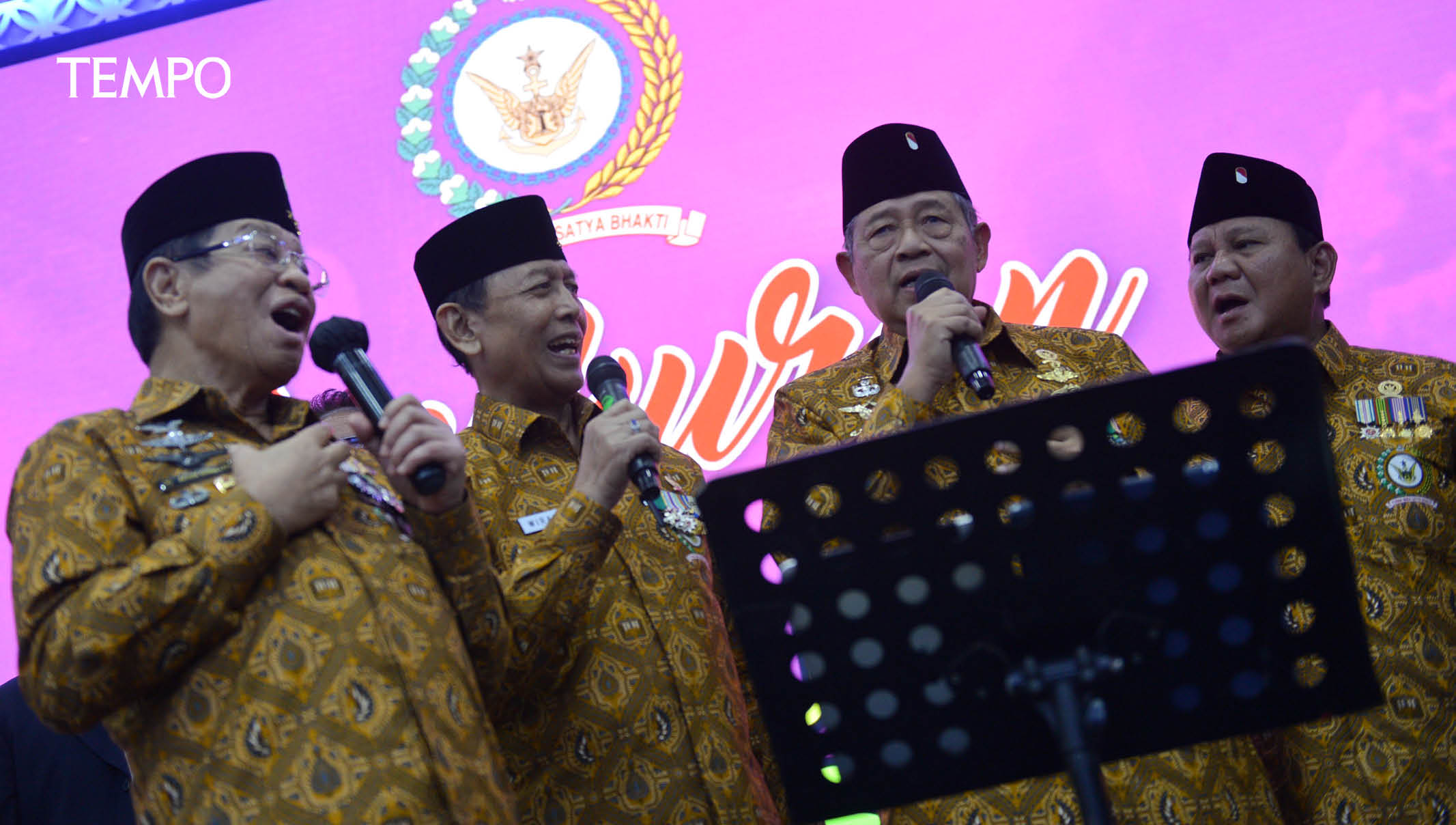Retired Generals behind Presidential Candidates
The 2024 presidential candidates are competing to garner support from retired generals. This perpetuates the militaristic nature of Indonesian politics.
Tempo
September 25, 2023

THE fact that the three candidates for the 2024 presidential election are crowing about support from retired generals shows that our politics has yet to rid itself of its militaristic nature. All the presidential candidates are convinced that retired military and police generals, who previously occupied important posts while they were still active, can increase their share of the vote.
Ganjar Pranowo has the Indonesian Chamber of Commerce and Industry Chair Arsjad Rasjid as head of his campaign team, with former Indonesian Military (TNI) Commander Gen. Andika Perkasa and former Deputy Chief of National Police (Polri) Comr. Gen. Gatot Eddy Pramono also on side. Meanwhile, Anies Baswedan is being supported by the Retired Senior TNI-Polri Officers Forum, particularly those who were dismissed from President Joko Widodo’s cabinet.
President Jokowi is giving increasing indications of his support for the Gerindra Party presidential candidate, Prabowo Subianto, as his behind the scenes conflict with Indonesian Democratic Party of Struggle (PDI-P) Chair Megawati Sukarnoputri continues. Prabowo has more support from retired army officers than the other two candidates, particularly from former generals who questioned him over the kidnapping of student activists in 1998.
For Prabowo, support from these retired generals is more than simply nurturing relations between the military and his family. It is also a means of absolving himself from the sin of gross human rights violations in the past. In all four elections he has contested, Prabowo has been accused of involvement in the kidnapping of pro-democracy activists by the Army Strategic Reserves Command, which he once headed. By having the people who questioned him and recommended his discharge from the TNI over the kidnapping case as his supporters, Prabowo is seeking to give the impression that he no longer has a problem with these crimes.
The recruitment of retired military and police generals also happened during the 2014 election, when candidate pairings Joko Widodo-Jusuf Kalla and Prabowo Subianto-Hatta Rajasa both showed off support from retired officers. Their aim was to deploy non-commissioned village supervision officers (babinsa), the vanguard of the TNI in the villages when it comes to directing voters.
This mobilization of the babinsa was proved by the army’s own discovery in Jakarta, Central Java, Yogyakarta and East Java. The army found evidence that babinsa in the provinces visited people’s houses to direct them to support Prabowo. But in that election, Jokowi and Kalla won the largest vote share. In Jakarta, for example, their vote was 53.08 percent, while Prabowo won 48.92 percent.
Therefore, the efforts of the babinsa were not the only determining factor in the vote share of a candidate. It is fair to say that the deployment of military or police networks is not effective in increasing vote share. In direct elections, as reflected in the majority of opinion polls, the preference of voters is directed more towards the individual candidates rather than the parties supporting them or their campaign teams. Mobilizing army or police networks in elections only damages the political neutrality of state institutions and worsens the quality of democracy.
The two administrations of Joko Widodo have proved that army and police support in elections leads to the appointment of senior members of these two institutions in civilian positions. As a result, the hopes of the 1998 Reformasi movement that politics would be free of the militaristic nature seem further and further away from the reality.
The awarding of positions of power to the military in return for support in elections disturbs civil supremacy, and makes Indonesia resemble the United States after the 1861 to 1865 Civil War. As noted by Columbia University sociologist C. Wright Mills in The Power Elite (1956), military veterans controlled the civil arena and produced public policies that benefited the military. The concerns about the raise of a new military elite faded away only after more civilians became members of representative bodies.
The 2024 presidential candidates should stop the mobilization of support from retired generals. They should focus on programs to improve the welfare of the people, protect human rights, maintain freedom of expression and preserve the environment.
